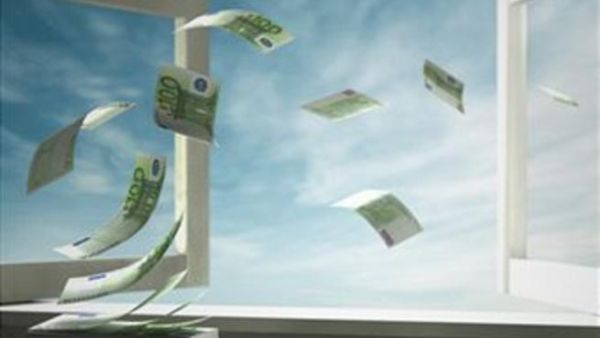Lebanon’s economy would probably be unaffected by a European recession because the Arab country maintains a peg to the dollar and most deposits are in the U.S. currency, Central Bank Governor Riad Salameh said.
“Lebanon will not be affected by a recession in Europe as the Lebanese economy essentially is dollarized,” Salameh, who has been governor since 1993, said in an interview in New York with Pimm Fox on Bloomberg Television’s “Taking Stock.” “A crisis on the euro will not affect us,” Salameh said, adding: “Banks in Lebanon do not hold sovereign bonds in Europe in substantial amounts.”
About 66 percent of deposits in Lebanon are in foreign currencies, 90 percent of which are in U.S. dollars, he said. Bank deposits will grow between 7 percent and 10 percent this year, Salameh said. Lebanese lenders have limited exposure to Europe because of central bank regulations that restrict the scope of their investments.
Concerns that Europe’s debt crisis may plunge the global economy into a recession dominated talks of policymakers, investors and bankers when the International Monetary Fund and the World Bank held their annual meetings in Washington last weekend.
Salameh took part in the World Bank and IMF annual meetings in Washington which were also attended by the three vice governors, Raed Charafeddine, Saad Andari and Mohammad Baasiri, along with a delegation of the Lebanese Banking Association, headed by Joseph Torbey.During his trip, Salameh was also named by the magazine Global Finance as one of the best six central bank governors in the word for 2011.
Lebanon’s banks largely avoided the global financial turmoil of 2008 and 2009 because Salameh banned them in 2004 from buying comparatively risky non-Lebanese assets such as noninvestment-grade paper and derivatives.
The stability of the Lebanese pound, which has been pegged at about 1,500 to the dollar since the 1990s, coupled with interest rates that were as high as 8 percent in 2008, have attracted a steady flow of funds into the country. “This stabilization policy has succeeded, leading to a price stability and a climate favorable to investment,” he said during a ceremony held in his honor at the Harvard Club in New York. “It has been adopted by many crisis-ridden countries, and even by the Swiss central bank toward the euro, with the aim of avoiding the negative effects of the Swiss Franc overvaluation.” This stabilization policy has contributed to an increase in bank deposits by 10 percent last year to $110 billion. The Central Bank has about $33 billion in foreign liquidity in addition to gold valued at more than $16 billion, according to the governor.
Salameh believes the soundness of this policy is corroborated by a tendency to purchase the Lebanese pound, unlike other emerging countries whose currencies register important falls, with prices being fixed freely by markets.
Domestic political wrangling and unrest in neighboring Syria slowed the Lebanese economy this year. The IMF sees 2011 growth of 1.5 percent, the lowest since 2006. Lebanon’s gross domestic product expanded 7.5 percent in 2010. Inflation is forecast to reach 5.9 percent this year, according to the IMF, while Salameh estimates consumer prices will rise 6 percent.
Salameh sees signs of growth even as the economy slows. “The IMF has announced that Lebanon’s real growth rate in 2011 will reach 1.5 percent, while the Central Bank expects a 2-3 percent rate,” he said during the ceremony. “This rate is satisfactory, compared with the negative rate in non-oil Arab countries, particularly that growth will take place during the second half of the year,” he added.
Salameh has also expected stability in the current interest rates which are accepted by markets. In fact, bank credits to the private sector have risen by 20 percent between 2009 and 2010 and by 15 percent in 2010-2011, thus exceeding those granted to the public sector. “The banking sector is performing well, credit is expanding and profits are increasing and total deposits represent three times our GDP,” he said.
Lebanon’s construction industry has grown almost 30 percent in the last three years and prices of real estate have multiplied an average of five times since 2006, he said. “Housing is attracting a lot of the credit of the banks,” Salameh said, adding that the Central Bank “put out prudential circulars to prevent bubbles.”
Salameh has also said there would be no bank failure, and that no bank is witnessing any problems. “However, in such a case, we will resort to the Law on Bank Mergers,” he said.








